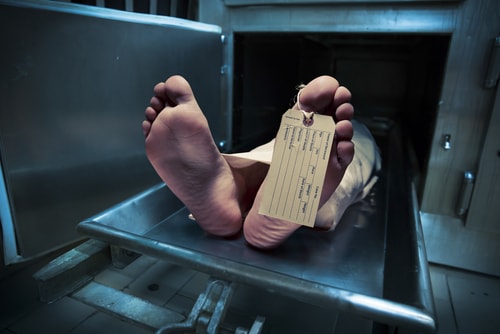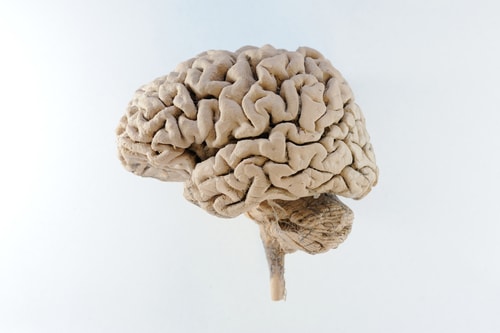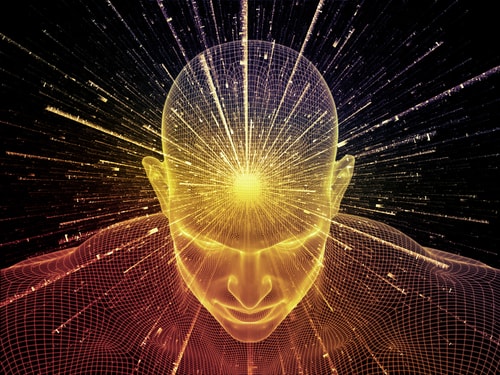What happens to you after you die? That is one of life's biggest questions. For millennia, humans have been trying to solve that problem through a variety of different ways. From philosophy to science, the question of life and death has pervaded a significant amount of important work either directly or indirectly.
人死后将会经历什么?那是有关生命的一大难题。数千年来,人类已尝试用各种各样的方法来解答这个难题。有关生命与死亡的问题已经直接或间接地在哲学和科学领域中充当重要的角色。
Unfortunately, there are no answers to the question of life after death. Even after all of this time, scientists are only beginning to fully understand the process of death itself. Old tropes talk of the moment of death as though it is a singular point in time or the period at the end of the sentence of life. But, just as life is a complicated series of processes and events, death cannot be broken down to a split second when life ends. From studies surrounding consciousness to tales of near death experiences, humans have been exploring these concepts for centuries. Recently, new breakthroughs in resuscitation science have some information about what happens to a person in the first few minutes after they die. This research is of hallmark importance; however, not all of it can be proven to be objective fact. Much of what life after death means comes down to the kind of life you describe. Life, as a biological process, will end. Cells die and are immediately broken down. That much about death is clear. But things like behaviors, traits and likenesses live on through our offspring. Whether it is by genes or by learned behaviors, some part of many people lives on through their children long after they die. Science cannot explain the phenomenon of life after death as it presently stands, but here are ten ways that it can try:
可惜的是,现在还没法解释死后的生命世界。甚至这么长时间以来,科学家们才刚开始全面了解死亡本身的过程。一些古老的比喻将死亡的那一刻比作时间中的一个奇异点,亦或是生命长河的最后时刻。但是,生命是一系列复杂的过程和大事件,当其结束时,死亡也不可能被分解成一刹那。从围绕意识的研究到濒死经历的故事,人类已经对这些概念探索了好几个世纪。最近,复苏科学有了新突破,揭示了在人死后最初几分钟内将会发生的事情。这项研究非常重要;但还无法证明所有的成果都是客观事实。死后的生活意味着什么,这很大程度上归结于你所描绘的生活。生命这一生化过程终将结束。细胞死后立即被分解。这些都确定无疑。但行为、特性以及长相等会通过我们的后代延绵下去。无论是通过基因还是习得行为,很多人死后会在某种程度上通过他们的子女继续活下去。就目前来说,科学尚无法解释死后的生命现象,但有以下10个方面可以进行尝试:
10.死亡并不是一件大事

The moment that your heart beats for the last time or the moment you take your last breath is not the moment of your death. Death continues to be a mysterious process for those with a career in science, and for those who ponder their own mortality.
心脏最后一次跳动或者吸入最后一口气,这都不代表你的死期已到。对那些科学研究者以及那些思索着自己死亡大事的人而言,死亡一向就是一个神秘的过程。
The fact that death is not a fleeting moment is demonstrated by the rare confusion that some people face regarding whether or not a person is really dead. Most people have heard the stories about someone who was declared dead but seemed to magically wake up at their funeral. Despite so many medical advancements and technologies, people still make mistakes about who is dead and who is not. A 91 year old Polish woman recently scared the life out of some morticians after she woke up in a morgue 11 hours after being declared dead. The mortician discovered that there was movement in the body bag and when it was opened, the poor woman was not only alive but quite healthy. A similar situation happened in Kenya in 2014. A young man was declared to be dead after he ingested insecticide. Although the doctors had tried to save him, they believed that the cause was lost. But only 15 hours after being sent to the morgue, he woke up and frightened the technicians who were working near and around him. Of course, some of these mistakes are the result of human error. After all, American coroners are not required to have medical degrees, and some conditions and medications do mimic death in a convincing manner. Mistaking the living for the dead is a rare thing in modern society. It happens so rarely that if a mistake is made, the news makes headlines around the world. Whether the mistake is made by an elected official or a trained medical professional, it opens up a necessary discussion about how complicated the processes of death and dying really are.
人们偶尔会困惑,不知道某个人是否已经死亡,这证明死亡并不是一个短暂的时刻。绝大多数人都听闻过被宣布死亡的人竟在他们的葬礼中奇迹般苏醒的故事。尽管有了这么多先进的医药和技术,人们仍然会在断定谁死谁生的问题上犯错。有个91岁的波兰妇女在被宣布死亡11个小时后,竟在太平间醒来,这可把一些入殓者吓得要死。有个入殓师发现装尸袋有动静,就在此时,袋子打开,那个可怜的妇女不但还活着,而且还相当健康。2014年,肯尼亚也有类似的情况发生。一名年轻男子摄入杀虫剂后被宣布身亡。尽管医生们已竭尽全力抢救他,但最终还是认定男子已经死亡。但就在被送去太平间的15个小时后,他醒了过来,吓坏了在一旁的工作人员。当然,有些错误是因为人为失误。毕竟美国的验尸官不一定要有医学学位,而且一些特殊状况和药物会造成令人信服的假死现象。误把活人当死人这一现象在当代社会已极为罕见。正因为它如此罕见,因此一旦出现,它将成为全世界的头条新闻。无论是一位民选官员还是一位训练有素的药剂师,当他们犯下这种错误时,都会激起一场有关死亡过程的复杂性和如何断定真正死亡的讨论。
9.The Brain Cannot Function When the Heart Stops Beating
9.心脏不跳动,大脑便停止运转

Dying is not an instantaneous process. Although it was thought to be a simple process in which a person stops breathing oxygen and supporting brain function, it is much more complex than this. Dying does not just happen. It is something that happens over an entire lifetime. The final process itself is something that happens over several hours and some doctors believe that it is reversible.
死亡不是一个瞬时过程。尽管人们把它看做一个简单的过程,即人停止吸氧供大脑运转,而实际上,它比这过程还复杂得多。死亡不是一下子就发生的。它贯穿于生命体的一生。其最后进程发生在几小时内,而且医生们相信那是可逆的。
Scientists know very little about what happens when a person dies. This is partly because it is such a complex question and partly because few researchers actually participate in discussions surrounding the subject. Many of the hard sciences like chemistry have supported the idea that there is only one objective in reality and anything that is subjective is not considered to be a fact. As a result, scientists veer away from the subject of life after death, despite its existential value. What science does know is that the brain needs oxygen to function; it relies on the heart and the cardiovascular system to take in oxygen, filter it and pass it to the brain. Once the heart stops beating, the brain dies very quickly. In fact, it takes only 20 to 30 seconds for the brain to stop all function after the heart has stops beating. It only begins function again if the heart can be restarted.
科学家们对人死时所发生的一切知之甚少。其中部分原因是死亡本身就是一个复杂的问题,还有部分原因是很少有研究者参与到该课题的讨论中。很多硬科学如化学已经证实,客观实际只有一个,任何主观事物均不被当作事实。因此,尽管人类的死后世界这一课题本身存在着价值,但科学家们还是远离这个课题。科学家们所知道的是,大脑需要氧气来维持正常的运转,它依靠心脏和心血管系统来吸收氧气,过滤后输送给大脑。心脏一旦停止跳动,大脑很快就会死亡。实际上,心脏停止跳动后,大脑只需20到30秒的时间就会停止所有功能。只有心脏再次跳动,大脑才能再次运转。
8.Some People Have Awareness Even After They Are Clinically Dead
8.有些人即使临床上证实死亡但他依然有意识

A recent study in resuscitation medicine surveyed 360 people who were able to be revived after suffering from cardiac arrest. These 360 people were found out of a group 2,000 patients from hospitals in America, Britain and Austria.
最近一个关于复苏医学的研究调查了360个在心搏停止后又苏醒过来的患者。这360人从美国、英国和奥地利的医院中的2000名患者中挑选出来。
Out of these 360 people, only around 100 were well enough to be interviewed. Out of this group, around 40 percent said that they had a kind of "awareness" even though their heart had stopped beating and their brains had stopped functioning. Of course, some scientists chalk this up to post-traumatic stress disorder or other psychiatric issues. However, one case in particular stood out among the crowd. One of these 360 people could describe the exact events that followed his death. He told the researchers that while he was clinically dead, he kept hearing the beeping of a machine. The beeps went every three minutes and he heard two beeps from the machine. The exact detail with which he could describe the events that followed his death lead doctors to believe that his brain did not fully shut down, even though his heart stopped for several minutes. Dr. Sam Parnia of the State University of New York at Stony Brook was the lead author of the study that published this miraculous case. Dr. Parnia suggested that man's experience was paradoxical, but that it opened up new possibilities in medicine. He believes that it is possible that more people continue to have awareness after death. He believes that the majority of patients lose memory of consciousness as a result of the trauma or of the sedatives involved in reviving them.
这360人中仅有100人左右恢复到可以接受采访的程度。接受采访的人中,有40%的人,说尽管他们的心脏已经停跳且大脑已经失去功能,但他们仍然有一些意识。当然有些科学家将其归因于创伤后精神失调或是其他心理因素。然而,有一个特别的例子很引人注目。360名患者中有一人可以确切地说出在他"死后"发生的事情。他告诉研究者,当他被诊断为医学死亡后,他还能听到一个机器发出的"哔哔"声。"哔哔"声每隔3分钟响一次,他听到了2次。他可以描述出死后所发生事件的确切细节,因此医生们认为,在他的心脏停跳数分钟后,他的大脑仍没有死亡。纽约州立大学石溪分校的山姆·帕尼尔博士(Dr. Sam Parnia) 是这项堪称奇迹的研究的主要负责人。帕尼尔博士说,人的经验相互矛盾,但这为医药领域展开了新的可能性。他相信,其实有更多人在死亡之后依然有意识。他认为大部分患者由于精神创伤或者在复苏过程中使用了镇静剂,因此忘记了他们在死亡后仍然有知觉。
7.People May Have Different Levels of Consciousness After They Die
7.人们在死亡后可能依然存在不同程度的知觉

In the same study, Dr. Parnia noted that out of the 360 patients in the study, many of these patients recalled dramatically different experiences of their time after death. Out of all of the patients interviewed, 39 percent said that they had distinct feelings of consciousness but that they were unable to describe anything that happened to them or around them during the period when they were clinically dead.
在同一个试验中,帕尼尔博士提到,在参与试验的360名患者中,很多人所回忆的死后经历迥然不同。接受采访的患者中,39%的人说他们在医学死亡后仍有清晰的意识,但是却不能描述在这个过程中他们身上及周围发生的一切。
About 46 percent of all of the patients interviewed said that they had some recollection of their near death experience; however, these memories do not fit in with the general knowledge about near-death experiences. Only 9 percent of the patients interviewed actually experienced the bright lights that are most commonly associated with a near death experience. Many of the people with memories remembered feeling scared and persecuted while they were dead. But people's experiences varied widely. Some people felt joyful while others described being enveloped a bright light. Some believed they had encountered a kind of mystical or mythical being. Only 13 percent of the people with these recollections felt as though they had been separated from their body. The variety of experiences that patients in this study reported suggests that if there is life after death, or in this case, brain function after death, then this experience is vastly different for everyone. There have been several reports in the media over the years of people who have come back from the edge at the last moment and claimed to have their lives flash before them. Some claim that they were taken in by a warm, brilliant light. While many of these reports are written off as hallucinations at best and outright lies at the worst, this new study provides some scientific merit to the experiences humans have encountered for years.
有大约46%的受访者说他们对濒死时发生的事有一些印象,然而这些记忆却与我们所知道的关于濒死体验的常识不符。只有9%的受访者真正体验到了通常与濒死联系在一起的亮光。大部分患者记得自己在"死后"感受到恐惧和纠结。但是人们的体验完全不同。有些人觉得十分快乐,有的人说他们被一道光亮笼罩,有些人坚信他们遇到了神话里的情形或是神话中的生物。只有13%的人觉得他们的灵魂和肉体好像分开了。在这次试验中,不同病人的不同反馈表明,如果死后依然有生命,或者在这个试验中,我们可以说死后大脑依然能够运行,那么这种经历在不同的人身上则完全不同。近几年来,媒体报道了不少从垂死边缘被抢救回来的病人,这些病人都称自己的人生像幻灯片一样在自己眼前一一呈现。有些人说他们被一道温暖明亮的光线吸入。这些报道顶多被轻率地当作是幻觉,最坏的情况下人们会简单地认为这是谎言。但这项研究为人们已经经历多年的现象提供了科学视角。
6.Consciousness Cannot Be Proven by Science
6.意识不能被科学证明

Unfortunately, even after at least 2,000 years of trying to understand human consciousness, no one seems to have any real answers. The topic was first documented as being considered by the Greeks and thinkers around the world have been infatuated with the subject for years. Consciousness cannot be proven. People can't even think about their own consciousness. The main problem, so far, with the perception of consciousness is that people cannot even think of the questions to find the answers to. Philosophers, psychoanalysts, doctors and learned people from all walks of life have made thousands of attempts to discover what it means to be conscious and how a person is conscious. Almost all people assume that we are conscious, but no one can prove it. As a result, proving or disproving the reports given by the patients in Dr. Parnia's study is impossible. Are they making them up? Are they merely tricks the brain plays to cover up the trauma? It remains impossible to tell. As for the man who accurately described the scene after his death, that alone can finally justify further investigations into the problems of life and death.
在至少2000年的人类意识探索中,不幸的是,没有人能找到这个问题的确切答案。这个话题首次被希腊人记录,世界各地的思想家多年致力于研究这一问题。意识不能被证明。人们甚至不能思考自己的意识。到目前为止,随着对意识的认知,最主要的问题是,人们甚至不能通过思考这个问题来找寻答案。哲学家、心理分析学家、医生和各行各业的博学之士尽其努力发掘意识的本质,了解人类怎样拥有意识。几乎所有人都认为我们是有意识的,但是无人能证实这一点。因此,不可能论证或反证帕尔尼博士的研究报告。这是他们编造的吗?还是大脑为掩盖创伤所玩的把戏?我们无从分辨。至于那些能够准确描述死后场景的人,也仅仅证明了生死问题还有待进一步研究。
















